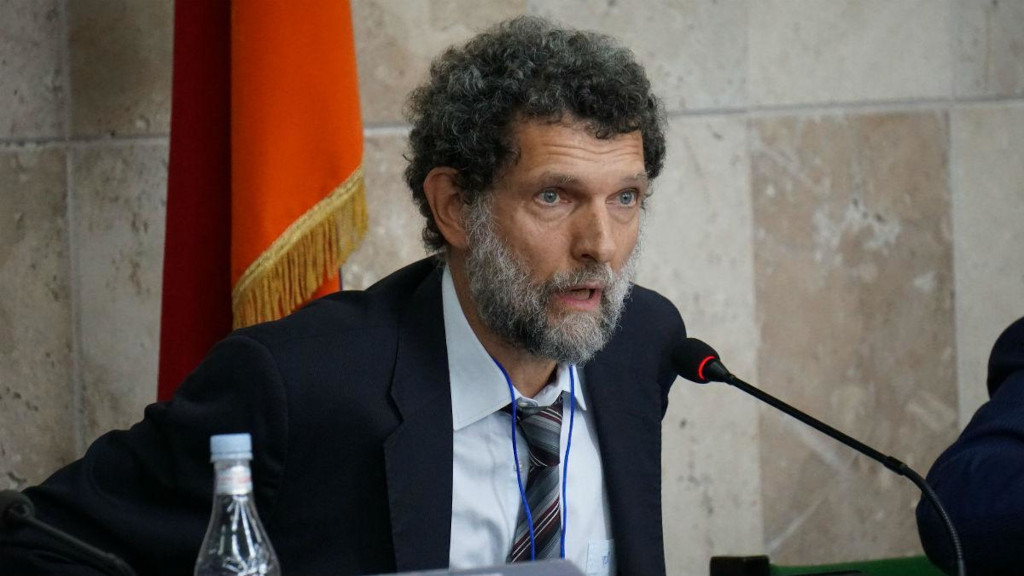An İstanbul court on Thursday decided once again to keep prominent businessman and philanthropist Osman Kavala, who has been behind bars on a series of shifting charges since 2017, in jail following a monthly review of an appeal against his imprisonment, Turkish media reported.
The İstanbul 13th High Criminal Court made its decision with a majority of votes despite a recent Council of Europe (CoE) decision to start infringement proceedings against Turkey due to Kavala’s continued imprisonment.
The court ruled for Kavala’s continued detention on the grounds that there was no change in his legal situation and that judicial probation would constitute inadequate punishment considering the maximum sentence sought for him.
Only one judge dissented.
The CoE’s Committee of Ministers, the executive organ of the CoE, on Feb. 1 decided to take action against Turkey for failing to release Kavala despite a European Court of Human Rights (ECtHR) ruling and ordered that the case be submitted to the ECtHR for review, officially beginning an infringement procedure against Turkey.
The 64-year-old civil society leader, who has been kept in jail without conviction of any crime for more than four years, is accused of financing 2013 anti-government protests and playing a role in a 2016 coup attempt. If convicted, he could be jailed for life without the possibility of parole.
Turkey refuses to release Kavala despite a binding judgment of the ECtHR in December 2019 finding that his detention for allegedly directing and financing the Gezi Park protests of 2013 and for alleged involvement in the failed coup of July 2016 was in pursuance of an “ulterior motive,” that of silencing him as a human rights defender.
The philanthropist has become a symbol to his supporters of the sweeping crackdown President Recep Tayyip Erdoğan unleashed after the failed coup.
In October 2021 the ambassadors of 10 countries, including the US, Germany and France, demanded Kavala’s immediate release in line with the 2019 ECtHR ruling. President Erdoğan threatened to expel the envoys before backing down.



